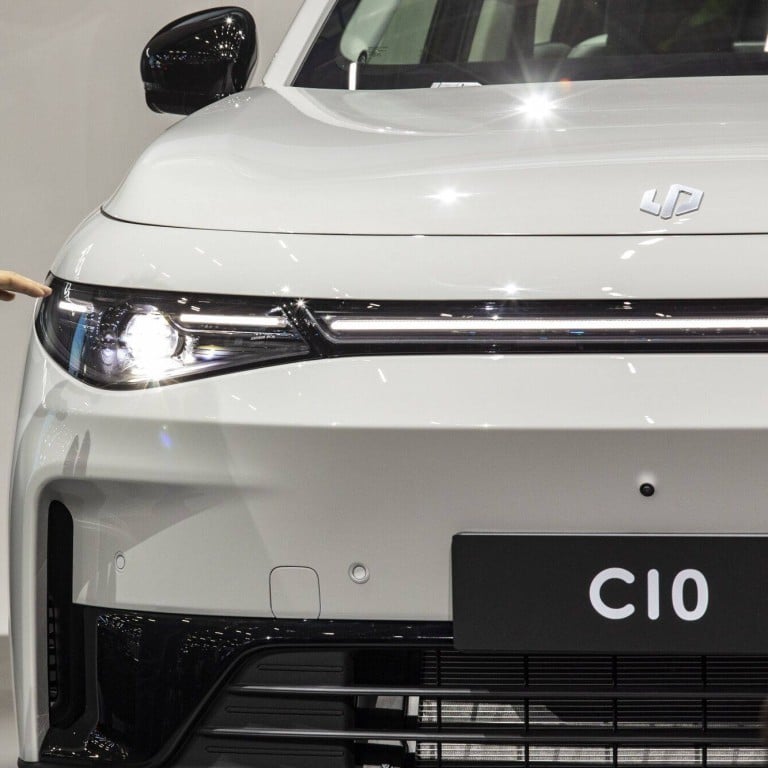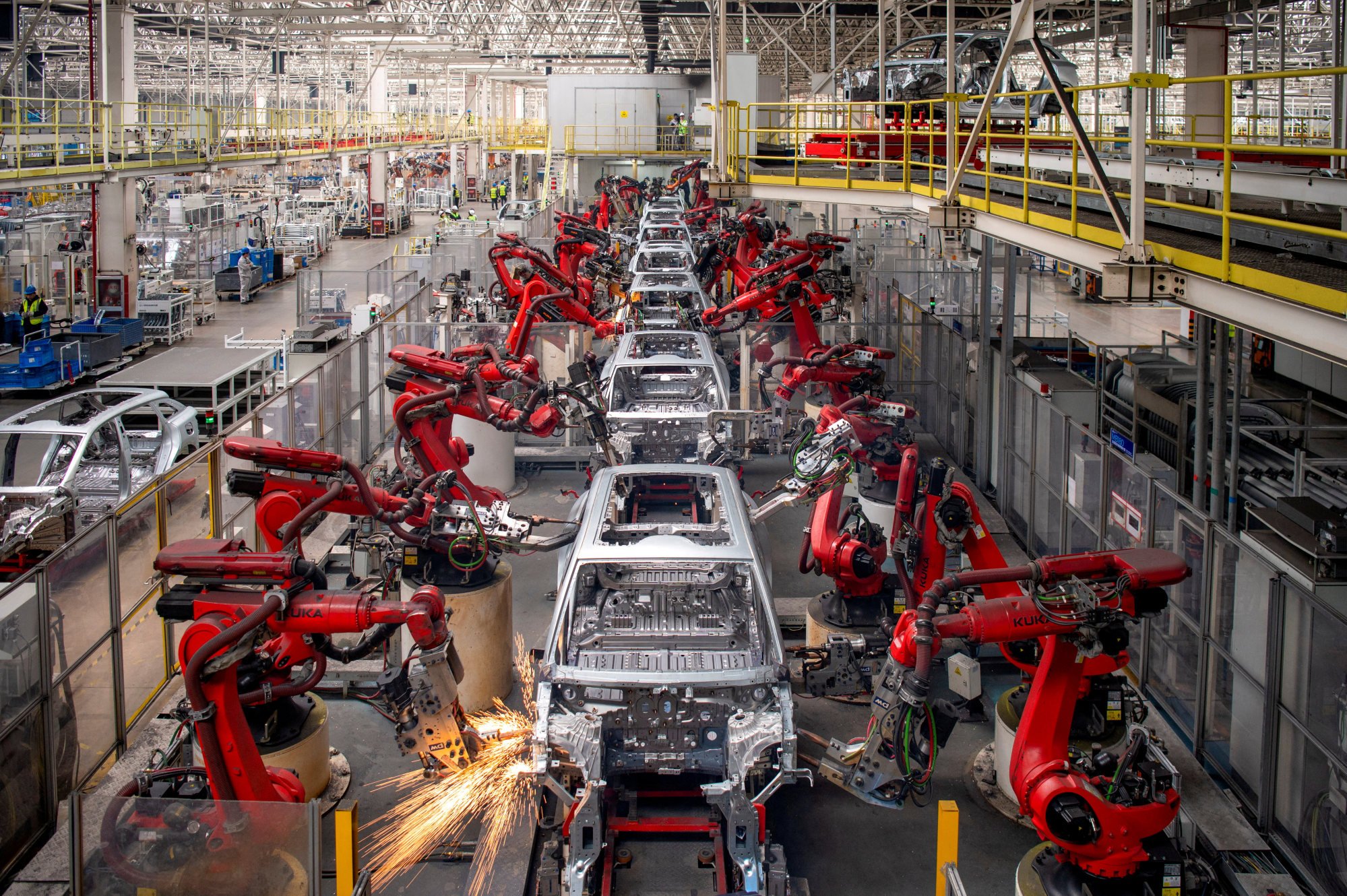
Stellantis-backed Leapmotor cuts C10 SUV price by nearly a fifth as China’s EV war rolls on
- The pure electric version of the C10 SUV starts at 128,800 yuan (US$17,897), 17.3 per cent lower than the presale price of 155,800 yuan
- The C10 will be the company’s first model to be exported from the third quarter onwards, founder and CEO Zhu Jiangming says
“We have been reiterating that Leapmotor prices its vehicles based on production costs,” he said at a media briefing on Saturday to announce the launch of the deliveries.
The pure electric version of the C10 starts at 128,800 yuan (US$17,897), 17.3 per cent lower than the presale price of 155,800 yuan in January. It has a driving range of 410 kilometres.

The price of the entry-level extended-range variant has been cut by 10.5 per cent to 135,800 yuan from 151,800 yuan. The car can go up to 210km on a single charge, with a 1.5-litre petrol engine acting as a range-extender.
The C10 is also Leapmotor’s first model aimed at the global market, Zhu said. Exports to Europe, Asia-Pacific, South America and Africa will start in the third quarter of this year, he added.
In China, Leapmotor plans to mainly target buyers in the 150,000 yuan to 200,000 yuan EV segment by offering cars fitted with best-in-class components, such as lidar sensors powered by Nvidia’s Orin X chip and digital cockpit powered by Qualcomm’s Snapdragon 8295 chip.
Founded in 2015 by Zhu, a veteran electronics engineer who co-founded surveillance giant Dahua, Leapmotor is now supported by investors including state-owned Shanghai Electric Group and Hongshan, formerly known as Sequoia Capital China.
China’s EV price war to hot up as carmakers price models below 100,000 yuan
In October, Stellantis agreed to invest €1.5 billion (US$1.58 billion) for a 20 per cent stake. The two companies said at that time that they would set up an overseas joint venture.
Leapmotor delivered 144,155 vehicles on the mainland in 2023, a year-on-year increase of 29.7 per cent.
“The prices of the C10 look attractive now that consumers are cautious on spending on big-ticket items,” said Gao Shen, an independent analyst in Shanghai. “A low-price strategy will be adopted by more EV assemblers this year as they try to survive fiercer competition.”
Geely’s Zeekr ups the ante in China’s EV war, offers 10% discount on new 001
Most carmakers are set to offer discounts and engage in a price war to retain market share this year, Cui Dongshu, general secretary of the China Passenger Car Association (CPCA), said last month.
EV makers sold 8.9 million units in China last year, a 37 per cent year-on-year increase, according to the CPCA. But sales growth could slow to 20 per cent this year, according to a forecast by Fitch Ratings in November.
Three carmakers, including a General Motors joint venture, followed suit and priced their bestselling battery-powered cars below the 100,000 yuan threshold, escalating a price war that could accelerate the transition to EVs in China.

